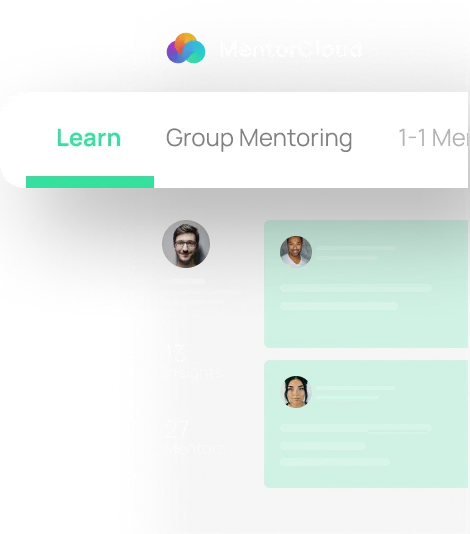A successful mentoring program is built on relationships, and the life vein of any relationship is communication. You can't build trust, collaborate on goals, measure progress, or transfer knowledge—all essential elements of a solid mentoring relationship—without maintaining reliable and effective communication. In Tune in The Importance of Listening in Mentoring, we explained how listening, an essential communication element, is a necessary quality for a good mentor. But there is another element of good communication that is even more important than listening, and that is the ability to ask the right questions. The right question can mean the difference between clarity and confusion. Both mentors and mentees can benefit equally from this skill.
With the right questions, mentors can understand a mentee's current skill set, what they hope to gain from the mentorship, and what fears or doubts might be holding them back. In turn, mentees can use intelligently developed questions to help them understand a mentor's background and how it relates to their role as a mentor, the mentor's expectations, and how their mentor defines success. These things are critical ingredients to a mentorship that starts strong and will stand the test of time. There are many different question types and techniques, but some of them are especially suited for a mentoring relationship:
Open vs. Closed Questions
Open and closed questions are similar because both methods are designed to elicit a specific type of answer. Available questions are geared toward developing conversation. They aim for long, detailed solutions that deliver lots of information. Closed questions, on the other hand, elicit short answers designed to communicate facts. Example (Open Question): What are your primary career goals? Example (Closed Question): How many mentees have you had in your career?
Structured Questions
Structured questions are designed to inform the respondent of the reasoning behind a set of questions. This creates the setting for an open Q&A geared toward developing a comfortable dialogue with the respondent. Example: To set expectations for the mentorship, I'll need to ask you a few questions about your goals and intentions.
Utilize Wait-time, or Silence
A strategically placed pause or extended silence between questions creates space in a Q&A session. This method is used for emphasis as well as to draw out a response. Pausing before or after a question or statement also gives the respondent time to evaluate the question and devise a thoughtful answer. Example: You have the potential to become a leader in your career…Can you tell me the defining characteristics of a good leader?
Socratic Questioning
The great philosopher Socrates was famous for using questions to promote learning. This method of questioning is designed to encourage respondents to go deeper by communicating the thought process behind their answers. Respondents are asked to analyze their responses and explain why they have a particular thought or feel a certain way. The purpose is to gain a thorough understanding of their goals. Example: What is your idea of success? Can you explain what this definition of success means to you?
Questioning to Elicit Participation
This method of questioning is especially suited for group mentoring sessions. In a group setting, it's all too easy for less outspoken individuals to retreat into the crowd. Questions designed for these participants help draw these individuals out and encourage them to interact with the group. In this way, shy mentees gain just as much from the session as outgoing ones. Example: What do you look for in a mentor? Turn to your neighbor and explain your answer.
Managed Responses
Finally, a thoughtful response can be just as important as a question, and it can sometimes yield the information you didn't gain from the question. Responses can be used for encouragement, validation, redirection, or to provide context. There are no "wrong" answers in mentoring, but there is often a need to clarify a respondent's ideas further. Example: Your answer is a little vague. Can you say it differently? Other questioning methods may be helpful in mentoring, such as probing, rhetorical, or process questioning. Ultimately, it's up to both participants to decide how best to use inquiry to build the relationship and gain the knowledge they need to reach the program goals. If this post resonated with you, check with your organization to see whether you are part of the MentorCloud network. If not, sign up for a demo here! Our vision is to create a mentoring planet in which true equality is achieved, and hard work is rewarded, but it's only possible with your participation.

.webp)













